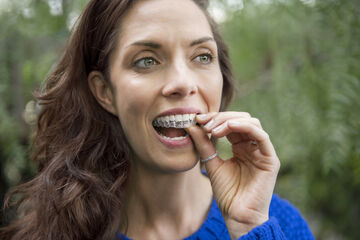
Botox is a popular treatment for a number of conditions, including wrinkles, migraines, and excessive sweating. More recently, it has also been growing in popularity as a treatment for bruxism, or teeth grinding.
The procedure is fairly simple: a doctor or dentist injects Botox into the muscles that control the jaw. This relaxes the muscles and prevents them from clenching or grinding the teeth. Botox for bruxism is usually done on an outpatient basis, and most people return to their normal activities within a day or two.
There are generally no side effects, although some people may experience temporary bruising or swelling at the injection site. Overall, Botox for bruxism is a safe and effective way to reduce teeth grinding and protect your teeth from damage.
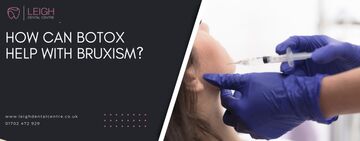
How can Botox help with bruxism?
Botox is most commonly associated with cosmetic procedures, but it can also be used to treat a number of medical conditions. One such condition is bruxism, which is characterized by the grinding or clenching of teeth.
While the exact cause of bruxism is not yet known, it is believed to be related to stress or anxiety. The symptoms of bruxism can range from mild to severe and can include headaches, jaw pain, and damaged teeth.
In some cases, bruxism may also lead to Temporomandibular Joint Disorder (TMJ). Botox can be an effective treatment for bruxism because it helps to relax the muscles in the jaw.
As a result, botox injections can help to reduce the grinding and clenching of teeth, and can also relieve the associated headaches and jaw pain. In addition, botox can help to prevent further damage to teeth by preventing the muscles from clenching as tightly.
As with any medical procedure, there are some risks involved with botox injections. However, when administered by a qualified medical professional, the risks are typically minimal. For many people suffering from bruxism, botox provides a safe and effective way to relieve symptoms and prevent further damage.
Trusting your dentist with Botox for bruxism treatment is ideal as they are very familiar with facial muscles and structures. They are also the most likely to diagnose bruxism.

How long do Botox injections work for teeth grinding?
Botox has become a popular treatment for bruxism, or teeth grinding. The procedure is simple and relatively painless, and it can provide dramatic results. Botox is injected into the muscles of the jaw, causing them to relax and reducing the amount of grinding that takes place.
Injections typically last for three to six months, and most patients report a significant reduction in symptoms. For many people, Botox offers a convenient and effective way to reduce teeth grinding and jaw clenching.
This treatment will not only reduce you pain associated with grinding your teeth, but it can also help to protect your teeth from uneven wear and tear. Grinding your teeth puts you at a higher risk of chips, cracks and tooth decay.
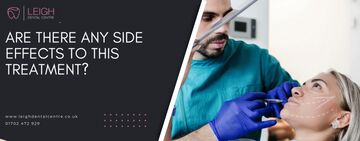
Are there any side effects to this treatment?
Botox is a popular cosmetic treatment that can help to smooth out wrinkles and fine lines. However, it is also important to be aware of the potential side effects of Botox before you undergo treatment.
The most common side effects include pain, swelling, and bruising at the injection site. These side effects are typically mild and resolve within a few days. Additionally, some people may experience temporary drooping of the eyelids or eyebrows. This usually lasts for a few weeks and will eventually resolve on its own.
In rare cases, more serious side effects such as difficulty swallowing or breathing may occur. If you experience any of these symptoms, it is important to seek medical attention immediately. Overall, Botox is a safe and effective treatment with minimal side effects. With proper care, you can enjoy the benefits of Botox for many years to come.
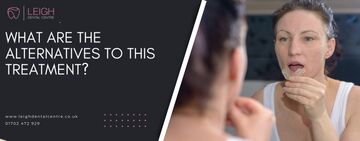
What are the alternatives to this treatment?
If you don’t want to try Botox injections, there are other ways to treat bruxism. The most common is by wearing a custom-made mouthguard at night. While this might not stop you from grinding your teeth, it can help to alleviate the pressure and avoid damage to your teeth.
You can also address the cause of your grinding. Teeth grinding is commonly caused by stress or anxiety, so finding a way to reduce these complex emotions in your life can be a highly effective way to treat bruxism.
Closing thoughts
If you or someone you know is struggling with bruxism, Botox may be a treatment option worth considering. Botox can help to relieve the symptoms of bruxism and its side effects are typically temporary. If you want to learn more about this treatment option, there are plenty of resources available. Have you ever considered getting Botox for bruxism?
Contact us to make an appointment
Exclusive Offer
Airflow stain removal from our hygienist
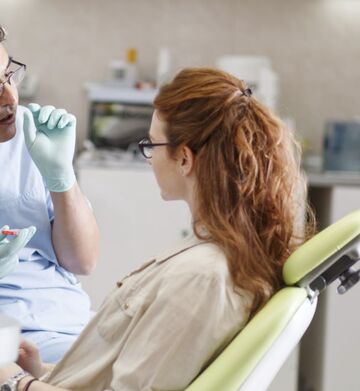
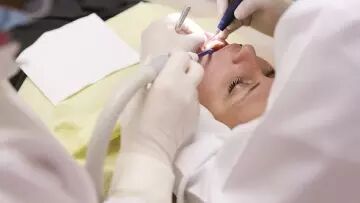
Replacement for a Missing Tooth
04.11.2023

Do I need a nightguard?
06.10.2023
Time for you perfect smile?
Book your consultation today
When visiting our practice you know you are visiting the dental professionals trained to the highest standards. You are greeted by our welcoming staff, who share the same aim, to make your visit with us as comfortable and stress free as possible.
